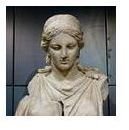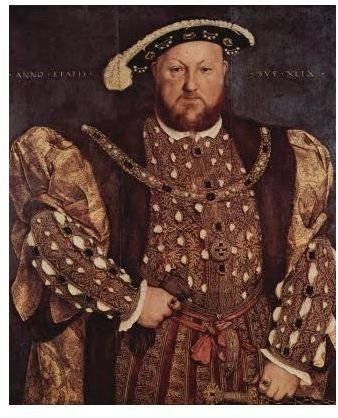Find Out How to Use Mnemonics & Memory Tricks When Studying
Editor’s Note: Adam Czasak was born in England of Polish parents. He has worked for about thirty years as a linguist, translator and interpreter, mainly with English and Polish, but also with Russian and Spanish. Mnemonics and body language have fascinated him for decades. Check out his site www.list-twist.com for more information and study help.
How to Use Memory Tricks While Studying
In many ways memory means imagination. If you can imagine something in the right way you’ll be able to remember it better. There are so many ways in which we can do this.
One way is by jogging your memory through the use of rhythm and sound by latching onto things you already know. Here’s an example from Mary Poppins demonstrating how this approach works. Let’s say you want to remember the capital of California. Instead of saying:
supercalifragilisticexpialidocious
try
superCalifornialisticSacramentodocious
This powerful mnemonic echoes the famous expression by fully replicating its rhythm produced by the use of stressed and unstressed syllables. A number of things make this mnemonic unforgettable:
- A close reference to the Mary Poppins musical;
- The number of syllables which are identical in both cases;
- The fact that both expressions are so similar they could almost be replaced by one another.
Make your mnemonic as reminiscent as possible of the sound, rhythm and overall structure of the facts you’re learning. This will give you a far better chance of remembering things for months or even years ahead. Here are a few more examples with the capitals of American States:
Alaska: Juneau = I’ll Ask-her about Alaska. D’you-know where Juneau is?
Ohio: Columbus = “O-hi-o-hi-o-hi!” called Christopher Columbus as he approached America.
Maryland: Annapolis = In the Merry-land An-apple-is good for you.
Short Cuts
You can also use short cuts for fast-track memorization. This approach is extremely handy, providing you already have enough background knowledge about the topic you’re interested in. So, if you want to memorize the kings and queens of the Tudor dynasty and you’ve already heard of at least some of the monarchs, but still need that little extra help, try something like this:
T****HHEME 78611
Pronounce this strange-looking mnemonic as ‘theme seven eight six double one’. Don’t forget that in this case the word ‘theme’ is spelt with double ‘h’. At first glance, this mnemonic might seem complicated but once you’ve understood the way it works you’ll see how effective it is. Here’s the explanation:
T = Tudor
H = Henry VII 7
H = Henry VIII 8
E = Edward VI 6
M = Mary I 1
E = Elizabeth II 1
This mnemonic contains all the information you need. However, I repeat: don’t use short-cut mnemonics unless you really do have some awareness of the topic you’re dealing with. Just imagine ploughing through all the monarchs and dynasties since the Norman Conquest. How far would you get with 1,000 years of English monarchical history by just using this approach?
Here are Some Other Methods!
Think of famous people and imagine them speaking:
- Seychelles: Victoria = Say ‘Shells’ ordered Queen Victoria
Think of a sport, hobby or pastime:
- Gambia: Banjul = Don’t Gamble in Gambia! They Ban-jewels there
Be as inventive as you can:
- Uganda: Kampala = There’s a lot of propUganda in the Camp-parlour
Put some real fun and humor into what you’re learning:
- India: New Delhi = Well! He walked In-dear and saw Nude-Elly!
Pakistan: Islamabad = Pack-it-in-Stan! Is-lamb-a-bad meal?

You can use these methods for any subject.
Pair up vital facts. For example, if you’re studying mythology and want to remember the Greek gods/goddesses and their Roman counterparts, prepare them in sets of two. Here’s a simple example for the Greek goddess Artemis and her Roman counterpart Diana:
Artemis: Diana = Stop painting! Give Art-a-miss, you won’t Die-Anna.
Listen & Learn
There can be no doubt that by recording your mnemonics you will save time, learn faster and won’t have to keep referring to your notes. This approach also helps you to remember the pronunciation. You might think that’s a waste of time but would you know how to pronounce molybdenum, tellurium or ytterbium in the Periodic Table of Elements? Or could you possibly read Ouagadougou which is the capital of Burkina Faso? There are plenty of sites on the Internet which help with pronunciation.
Making Lists
This is central to the memorization process. By drawing up lists of facts relating to a specific topic you will start consolidating huge chunks of information. You’ll be able to extract any fragment of information from the list or treat it as a single body. There are different ways of making lists work for you. You can prepare them in alphabetical or chronological order. You can make them more compact by locking them together in the form of a poem or story. You can use symbols. The method is up to you, but please remember to include at least something that relates to the sound, rhythm and structure of the facts you’re learning. With time and patience you’ll realize your memory’s far better than you thought.
Now It’s Your Turn!
See if you can make up your own mnemonics based on the facts below. First of all, make sure you really do know how the words are pronounced so that you can use this knowledge to make a more accurate mnemonic. Once you’ve finished, compare your mnemonics with the ones suggested in the box below. Remember – your solution is just as good and probably far better because it’s the one that best works for you.
1. European countries and capitals:
- Andorra: Andorra la Vella
- Cyprus: Nicosia
- Turkey: Ankara
2. Period II in the Table of Elements:
Lithium, Beryllium, Boron, Carbon, Nitrogen, Oxygen, Fluorine, Neon
3. America’s first five Presidents (by surname):
Washington, Adams, Jefferson, Madison, Monroe
4. The divisions of the Old Testament in the Bible:
The Pentateuch Books, The Historical Books, The Books of Wisdom and Poetry, The Prophetical Books
Suggested Answers
1. European countries and capitals:
- And-Dora? And-Dora, love-Ella? That’s impossible!
- People use the old Cypress to dry their Knickers-here
- Use that Turkey to Anchor-a ship
2. Period II in the Table of Elements:
Little Beryl Borrowed a Car at Night and the Ox Flu over the Neon.
3. America’s first five Presidents (by surname):
Washing Adam and Jeff Maddened Marilyn Monroe
4. The divisions of the Old Testament in the Bible:
If you’re PENT up about HISTORY use the WISDOM AND POETRY of the PROPHETS
If you’d like to make a comment or share your mnemonics please feel free to do so in the comments box below.
References
- All Photos in the Public Domain
